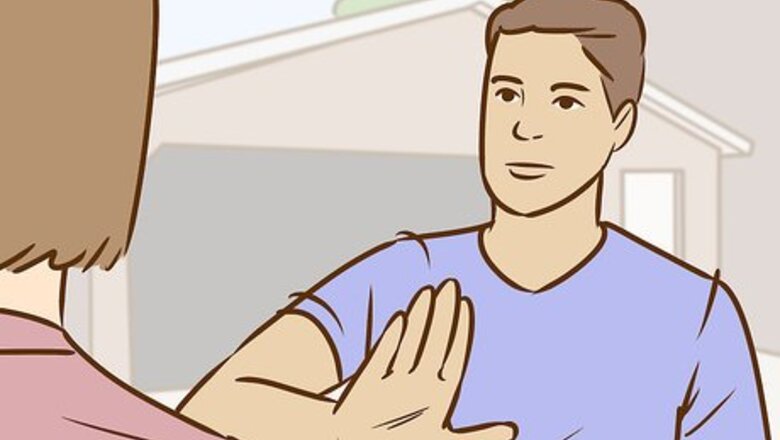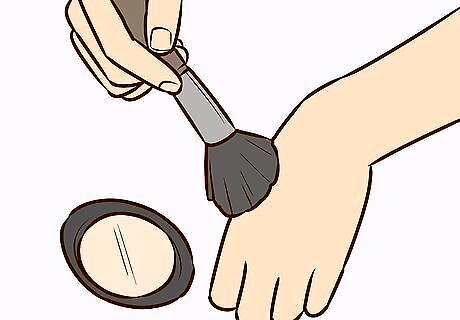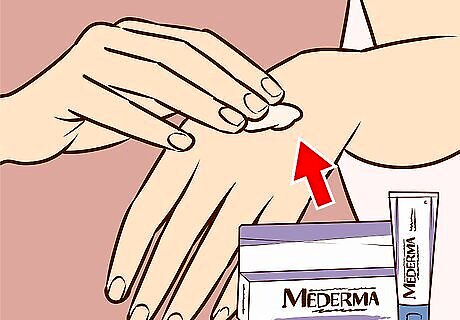
views
Choosing Your Response

Don’t feel obligated to talk about the scars. Your scars are personal. If you don’t want to tell anyone how they occurred, you don’t have to. If someone asks about them, it’s okay to politely say that you’d rather not talk about it. For instance, you could say something like, “I’d rather not talk about that,” or, “It’s a long story, but now isn’t the time to tell it.” If you’re not comfortable discussing your scars, consider covering them up to avoid questions. Be aware that refusing to discuss your scars may make people even more curious about them.

Give a brief, honest answer. Honesty is often the best policy when it comes to explaining self-harm scars, but you don’t have to go into detail. Acknowledge the scars and mention that they were from a tough time in your past, then let the subject go. The person you’re talking to may drop the subject as well. Keep in mind that most people are not knowledgeable about self-harming behavior and do not understand it, so they might respond in unhelpful ways. For example, they might try to force you to change, accuse you of doing it for attention, focus only on your injuries and scars, or refuse to acknowledge or discuss it with you. Prepare yourself for these types of reactions before you decide to share with someone. You can say something simple and to-the-point like, “I cut myself when I was depressed several years ago, but I’m doing better now.” Then change the subject.

Explain your feelings, not the action of self-harm. If you decide to tell a friend or family member the truth about your scars, focus on the emotions you were dealing with at the time. Don’t go into detail about the act of self-harm. They might find that information disturbing or hard to deal with. For instance, don’t talk about which tool you used to cut yourself. Instead, say something like, “I felt really isolated and lonely back then, and this is how I dealt with it.”

Provide an age-appropriate answer to children. Children may be more likely than adults to innocently ask where your scars came from. While you can be honest with them, make sure your answer is age-appropriate. Don’t go into details that might scare or disturb them. Instead, keep your answer short and simple, and then steer the conversation in another direction. For instance, it’s generally okay to explain to a six-year-old what scars are. Since young children don’t understand complex issues like self-harm, though, don’t talk about hurting yourself. Instead, say you got the scars when you were sick. However, for older adolescents or teens, you might give a bit more detail that like "I was really sad for a while and this is how I dealt with it. It wasn't the right decision, but I'm glad I've moved past it."
Deflecting the Question

Make an excuse. If you’re faced with a question about your scars but don’t want to tell the truth, a white lie can sometimes take the pressure off. Blame your scars on an accident or mishap that happened long ago. This only works if your scars look like they could have been caused by an accident. For instance, if you have rows of scars that were clearly caused by self-harm, people probably won’t believe your story that your cat scratched you.

Divert the question. You can take the pressure off yourself and build rapport with the person who’s talking to you by turning the question back around to them. Acknowledge your scars, and then say something like, “Do you have any scars?” or “Have you ever gone through a time that caused you a lot of pain?” This approach is especially effective with children and teenagers, since it helps them relate to you.

Deflect with humor. A light-hearted approach may be a best bet if you feel awkward about discussing your scars with strangers or loose acquaintances. In such situations, you can shake off the question humorously. Say something that obviously isn’t true, such as, “I fought a dragon when I was a kid.” Laugh it off and change the subject as soon as possible. Of course, self-harm isn't something to make light of, but this may be your only route to take if you'd rather not disclose personal info to a person or group.
Avoiding the Question Completely

Cover up with clothes. The simplest way to avoid questions about your scars is to wear clothes that cover them. Long pants and long-sleeved shirts are an easy way to hide most of your skin. If you are a woman, you may be able to stay cooler in the summer by wearing long skirts, sheer tights, and light cardigans. For one-time events when you cannot cover up with clothes, consider using a professional concealer. You can get this from a dermatologist. Another option is to cover your arm with a light shawl.

Hide scars with makeup or body art. If covering your scars with clothing isn’t an option, you can use body makeup to minimize their appearance. If you want to permanently cover the scars, consider getting a tattoo. If you choose to use makeup, look for a heavy-duty concealer that’s designed to cover tattoos or scars. Many regular foundations don’t provide adequate coverage. Do not put makeup on a scar until it is fully healed.

Consider medical treatments. Ask your doctor about the best way to reduce the appearance of your scars. An over-the-counter topical treatment may be able to help fade smaller scars. For more severe cases, procedures such as dermabrasion and laser resurfacing can help smooth out the appearance of your skin.




















Comments
0 comment